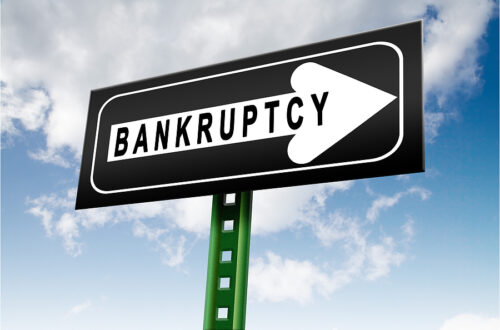Several factors come into play when deciding whether or not you should file for bankruptcy because of looming medical bills. If you have good credit, you may want to handle the issue outside of bankruptcy. It is true that filing for bankruptcy will affect your credit, but making late payments or missing them altogether would be more harmful to your credit. Also, there is the possibility of your medical provider suing you, followed by wage garnishment. If you are unsure of how to handle medical bills with good credit, now is the time to review all of your options before it is too late.
Bankruptcy Options
If your medical provider is unable to work with you regarding your medical bills, creditors will likely pursue you for payment, and their collection actions will begin to appear on your credit. If the provider sues you and receives a judgment, they could garnish your wages, which can put even more financial stress on you. By filing for bankruptcy, you can stop further collection attempts and prevent wage garnishment from happening.
For those who do not earn a lot of money and have assets with little or no equity, filing for Chapter 7 bankruptcy may be the best option. Not only will this cease collection attempts, it can result in your medical debt being wiped away completely. Many consumers believe that they should only file for bankruptcy if they have bad credit. This is not true. Many debtors file Chapter 7 on a single, but substantial debt. Medical debt is an unsecured debt and can be easily discharged in a Chapter 7 bankruptcy.
Non-bankruptcy Options
You may try to negotiate a settlement with your medical provider directly. If all insurance payments have been made, and your bill was for uninsured medical costs, the medical provider may waive a part of your bill. If you qualify for the Hospital Care Assurance Program (HCAP), you may be able to receive free or reduced hospital care, based on your income. Your hospital’s financial aid counselor can help you with this option. Under the Affordable Care Act (ACA), non-profit hospitals must provide free or low-cost coverage for low-income individuals.
Those who have experienced illness or injury and found themselves overwhelmed with medical debt should contact an experienced Miami bankruptcy attorney. In bankruptcy, medical bills are considered general unsecured debts just like credit cards. This means that medical bills do not receive priority treatment and can easily be discharged in bankruptcy. Bankruptcy laws were created to help people resolve overwhelming debt and gain a fresh financial start. Bankruptcy attorney Timothy Kingcade knows how to help clients take full advantage of the bankruptcy laws to protect their assets and get successful results. Since 1996 Kingcade & Garcia, P.A. has been helping people from all walks of life build a better tomorrow. Our attorneys’ help thousands of people every year take advantage of their rights under bankruptcy protection to restart, rebuild and recover. The day you hire our firm, we will contact your creditors to stop the harassment. You can also find useful consumer information on the Kingcade & Garcia website at www.miamibankruptcy.com.

